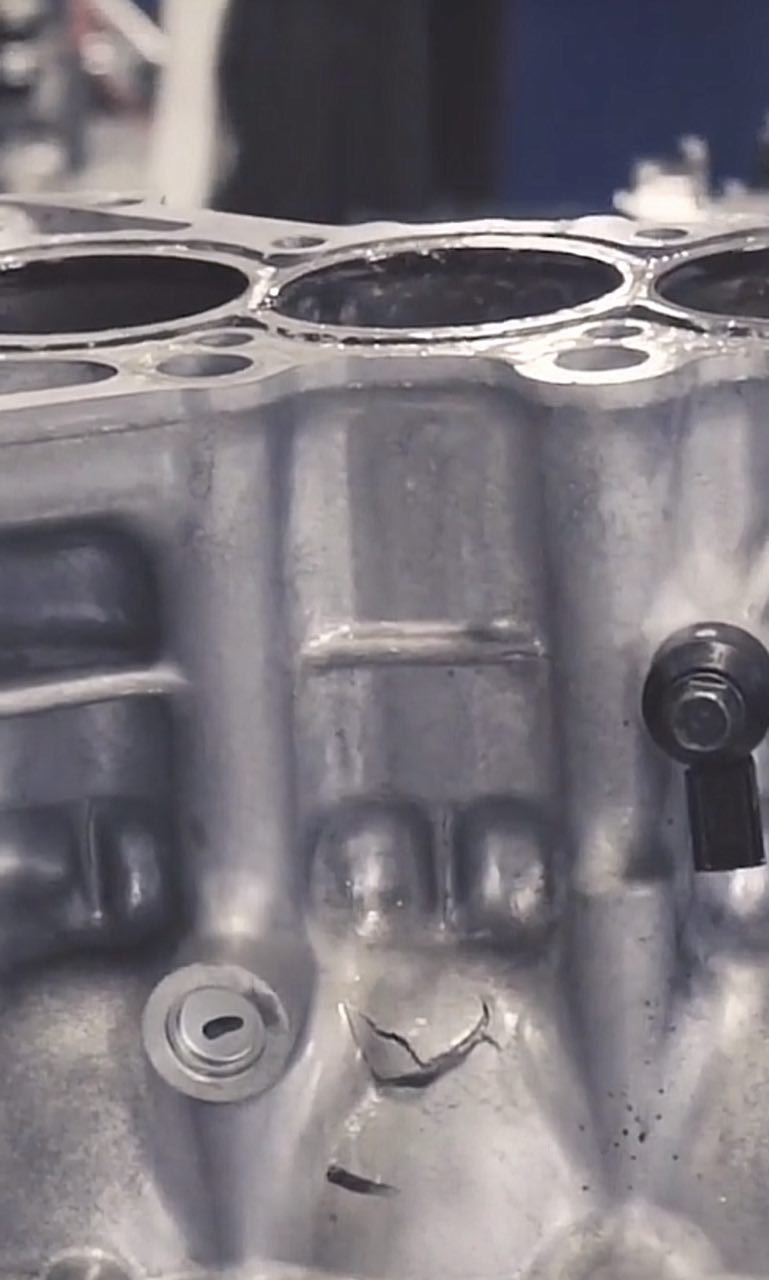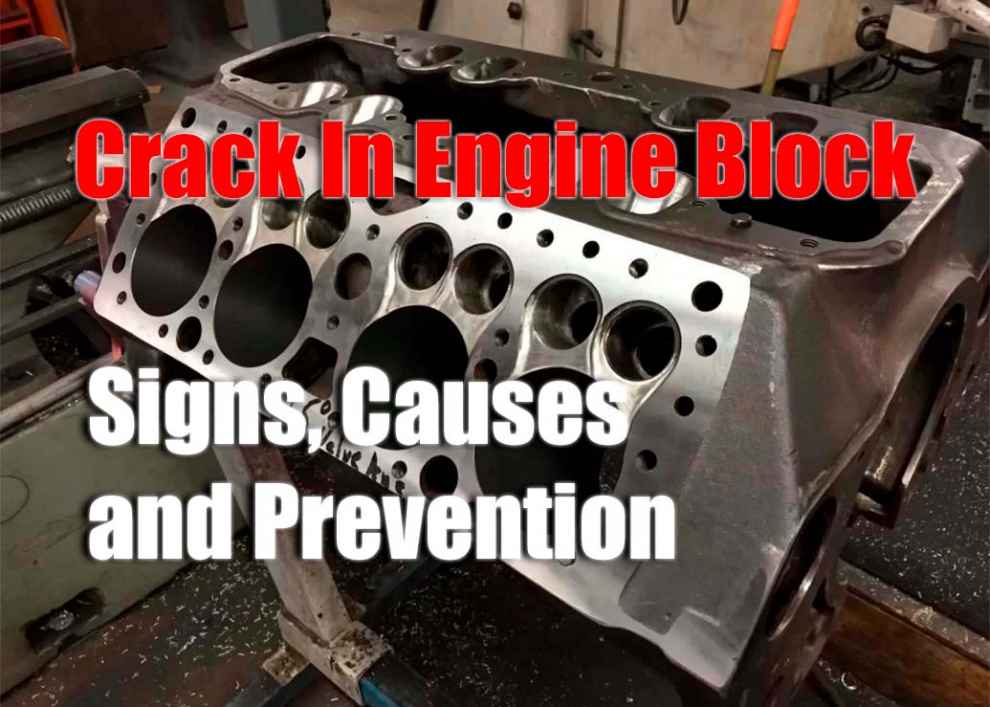A cracked engine block can be a significant problem for any car or truck owner. The engine block is the foundation of any vehicle’s powertrain system, and a cracked block can reduce an engine’s performance, cause oil leaks, or even lead to catastrophic failure. In this article, we’ll explore the signs and causes of cracks in engine blocks, how to diagnose a cracked engine block, and preventative measures you can take to avoid it from happening.
What Causes Crack in Engine Block
Several possible causes of a cracked engine block include overheating, corrosion, and improper maintenance. Overheating is the most common cause of a cracked engine block. As an engine runs, it produces immense amounts of heat, leading to thermal expansion and contraction cycles that weaken the metal over time. If an engine is allowed to overheat too often or for too long, it can cause the metal to weaken and eventually crack. Corrosion can also be a factor if the vehicle has not been serviced regularly or stored correctly; rust from water and other contaminants can weaken the metal over time, causing it to become brittle and eventually crack. Improper maintenance, such as incorrect torqueing of bolts or inadequate sealing of gaskets, can also contribute to cracks in the engine block by creating stress points that are more prone to cracking. Also read about Bad Idler Pulley.
How to Diagnose a Cracked Engine Block

Fixing Cracked Engine Blocks
Fixing a cracked engine block is a complex and expensive task that requires professional expertise and specialized equipment. Not all engine blocks can be repaired, and replacement may be the only viable option in some cases. However, if the crack is small and caught early, some repair options might be available. Here are some general steps that might be taken in attempting to fix a cracked engine block:
-
Assessment: Have a professional mechanic or an automotive expert inspect the crack to determine its size, location, and severity. They will assess whether a repair is feasible or if replacement is necessary.
-
Clean the engine block: Before attempting any repairs, the engine block must be thoroughly cleaned to remove any debris, oil, and coolant residues that may hinder the repair process.
-
Pinning: Pinning might be an option if the crack is small and not too severe. It involves drilling holes at each end of the crack and inserting metal pins or studs to hold the crack together.
-
Stitching: Another method used for certain types of cracks is stitching. It involves drilling holes on each side of the crack and threading wires through the holes to “stitch” the crack closed.
-
Cold metal stitching: In more advanced cases, a cold metal stitching technique using special locking pins and epoxy can be employed to repair cracks.
-
Welding: In some situations, the crack can be welded shut using specialized techniques and equipment. However, this is often challenging because engine blocks are typically made of cast iron or aluminum, which can be difficult to weld without causing further damage.
-
Heat treatment: Some cracks can be repaired through heat treatment, which involves carefully heating the engine block to specific temperatures and allowing it to cool gradually.
-
Epoxy and sealants: Certain epoxy products and sealants are designed specifically for engine block repairs. They can be used to fill small cracks or act as temporary measures until a proper repair or replacement can be performed.
-
Replacement: If the crack is extensive or if repair attempts are unsuccessful, the best option may be to replace the entire engine block. It can be costly, but it ensures a more reliable and long-lasting solution.
Conclusion
In conclusion, a cracked engine block is a serious issue that can significantly affect a vehicle’s performance and reliability. Understanding the causes and symptoms of engine block cracks is crucial for early detection and timely action. Regular maintenance, proper cooling system care, and attentive driving can help prevent engine block cracks from occurring in the first place. If faced with the unfortunate situation of a cracked engine block, seeking professional help from experienced mechanics is essential to ensure a proper diagnosis and appropriate repair solution. By taking these precautions when needed, car and truck owners can safeguard their engines and prolong the life of their vehicles, avoiding the headaches and expenses associated with cracked engine blocks.

Add Comment